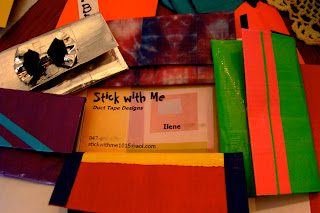




A few months ago my mom dived into a new hobby, and I blogged about it here.
When I visited this past Thursday for an overnight 'vacation,' mainly to give my cat some time to himself and to take a break from everything, I found myself not enmeshed in an oasis of quiet and calm but instead witnessing a kitchen-table-turned-drafting-area, with my mom at its helm, working against a deadline for an upcoming craft fair.
"You read. Would you pay $2 for a bookmark? " my mom asked.
"I don't use bookmarks," I replied.
"What do you do?" she wondered, as if she hasn't noticed me dog-earing book pages for the past 30 years.
"Dog-earing, that's not good for the book. You need to use a bookmark," she decided, finding the turned over corner of the page of the book I was reading, and inserting a bright orange bookmark, adding, as afterthought, "You don't need your name written on it, like the one I made for Gabby, do you?"
"Uh no, it's okay," I said.
I also made out with a checkbook cover, and matching coin purse, both of which I'm excited to use.
Stick with Me started when a consignment shop sold two of its checkbook covers, at $8 each, which was enough of a sign to forge ahead. A cousin who makes jewelry offered to set aside some space in her craft fair booth for SWM, and yesterday The Pipeline e-newsletter agreed to make an exception for Stick with Me-- technically located outside of the neighborhood- and add it to the Angel Club listings.






